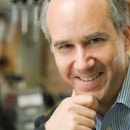Autism Genetics: Searching for Coherence
- Speaker
-
 Daniel Geschwind, M.D., Ph.D.Gordon and Virginia MacDonald Distinguished Chair in Human Genetics Professor of Neurology and Psychiatry, UCLA School of Medicine
Daniel Geschwind, M.D., Ph.D.Gordon and Virginia MacDonald Distinguished Chair in Human Genetics Professor of Neurology and Psychiatry, UCLA School of Medicine
Presidential Lectures are free public colloquia centered on four main themes: Biology, Physics, Mathematics and Computer Science, and Neuroscience and Autism Science. These curated, high-level scientific talks feature leading scientists and mathematicians and are intended to foster discourse and drive discovery among the broader NYC-area research community. We invite those interested in the topic to join us for this weekly lecture series.
By clicking to watch this video, you agree to our privacy policy.
The understanding of autism spectrum disorder as a range of disorders, rather than a singularity, raises the question of whether conditions of the disorders converge on common molecular pathways.
In this lecture, Daniel Geschwind will discuss his group’s use of RNA sequencing, chromatin structure and gene networks to help develop an understanding of potential convergent mechanisms in autism spectrum disorders. He will illustrate how knowledge of chromatin structure informs the understanding of gene regulation during human brain development and disease-associated, non-coding variation.
Geschwind will describe his lab’s work leveraging multiple transcriptomic datasets and gene network analyses to predict how risk genes for autism spectrum disorders affect the development and function of brain circuits. His group now uses this framework to explore convergence and divergence with other neuropsychiatric disorders.
